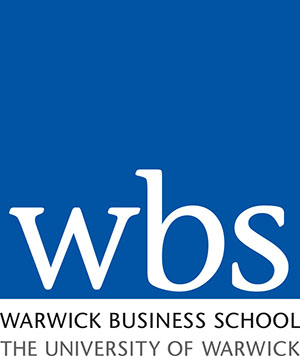- Leadership
Keeping the CEO Informed
3 components of a personal knowledge infrastructure
When Martin Winterkorn, the embattled CEO of Volkswagen, announced his resignation recently, like FIFA's Sepp Blatter, Barclays’ Bob Diamond, BP’s Tony Hayward and others before them he denied any knowledge of the cause of the scandal that had just broken. This suggests, not only inadequate corporate governance, but a dire lack of basic communication protocols that should ensure CEOs are informed at all times about all internal and external facets of the organization.
According Davide Nicolini and Maja Korica of Warwick Business School, and Keith Ruddle of Saïd Business School, in a recent article in Sloan Management Review referencing their research, a ‘personal knowledge infrastructure’, based on the right practices, relationships and tools and aligned with the needs and personality of the CEO, can ensure the CEO stays informed on the key issues relevant to him or her as a leader, and can make the difference between leadership success or failure.
CEOs are responsible for knowing what is going on. No matter how large, complex or global the organization, CEOs do not have the luxury of pleading ignorance; it is their job to keep abreast of what their employees and competitors are doing and what’s on the horizon that can impact their companies’ performance and reputation.
CEOs can use new technology tools to help keep informed. But, it’s a mistake, according to one group of researchers, to believe that more tools and technology is the simple answer to the growing challenge of ‘staying in the know’.
The researchers conducted a two-year study that followed the day-to-day work of seven CEOs in charge of the largest hospital- and mental health-based organizations in the UK. Combining the pressures and expectations of both the private and public sectors, directing such organizations is extremely complex and challenging and staying informed is absolutely vital. How do they do it?
According to the research, the answer lies in building a personal knowledge infrastructure that consists of three components:
Routine practices. These practices range from watching the news, one-on-one conversations (formal or impromptu) with direct reports and employees and ‘walkabouts’ to meetings with board members and other CEOs, attending conferences and staff events, and participating in charity events.
Social relationships. CEOs should cultivate strategic relationships, both inside and outside the organization, designed to give them the broadest sources of information, both formal and conjectural. All contacts are not equal, ranging from the occasional check-in with well-placed acquaintances or former employees to close relationships with an ‘inner circle’.
Tools of the trade. These include traditional sources of information, such as emails, phone calls, reports, and trade journal articles, but non-traditional sources of information — blogs, twitter and other social media — are equally important. Electronic reporting systems or audit-based dashboards monitoring key performance indicators are also highly useful.
The seven CEOS studied worked with different combinations of these factors; as indicated by the terminology, the goal is to pull together a personal knowledge infrastructure: one that best fits the needs and preferences of the individual CEO. Different factors, the research shows, will impact the most effective combination of tools, practices and relationship for individual CEOs. CEO experience, job tenure and the make-up of the executive team, for example, can influence the social relationships that CEOs are able to build. Changing organizational conditions and pressures or a new strategy can require an overhaul of components to meet changing needs.
A knowledge infrastructure that is not aligned with the CEO’s needs can suddenly and perhaps disastrously reveal itself when something goes wrong.
Warwick Business School is a leading thought-developer and innovator, in the top one per cent of global business schools.
ARTICLES YOU MIGHT LIKE
BOOK REVIEW
Christopher Kayes explains how leaders can manage difficult emotions to lead outside their comfort zone
DEVELOPING LEADERS QUARTERLY MAGAZINE AND WEEKLY BRIEFING EMAILS


































